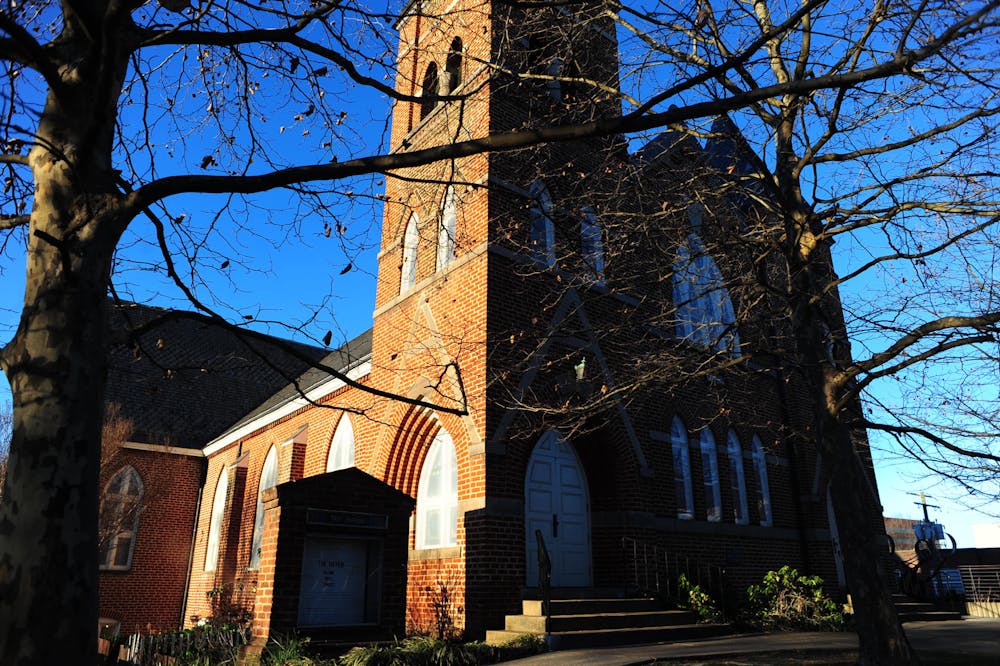Virginia Gov. Glenn Youngkin announced a contribution of $12 million to the Virginia Housing Trust Fund, a program established by the Virginia Department of Housing and Community Development that specifically provides funding to organizations focused on reducing homelessness in Virginia. Among the 55 organizations across the Commonwealth which will receive funding from these recent grants are Virginia Supportive Housing and The Haven at First & Market Inc., two Charlottesville-based organizations working to address homelessness in the area.
Virginia Supportive Housing is an organization which aims to provide permanent supportive housing to chronically homeless adults across the Commonwealth, according to communications officer Kate McCarthy. Supportive housing combines affordable housing with services such as counseling programs, according to VSH’s website. VSH’s Charlottesville location, an apartment complex called The Crossings, will receive $110,000 in funding out of the $12 million recently allocated to the Virginia Housing Trust Fund.
McCarthy said VSH will use the grant funding to pay the salaries of employees at The Crossings. Employees at the apartment complex provide services such as connecting residents with primary health care providers and identifying resources to help address substance abuse disorder, as well as providing job training to residents and helping them become self-sufficient to avoid returning to homelessness.
McCarthy noted that thanks to The Crossings’ work and these services, 95 percent of the individuals that they work with do not return to homelessness.
“This money allows us to pay the people who do that really, really important, human interaction-based work, to help someone restabilize and grow on their journey back to independence,” McCarthy said.
She added that VSH receives about two-thirds of its annual funding from local, state and federal government sources and that the organization has received funding from the Virginia Housing Trust Fund in the past. The majority of the organization’s non-government funding comes from private donations.
“When you do this work for decades, you end up having a lot of trust built between you and funding partners,” McCarthy said. “So we’re very lucky that we've built that reputational trust with our different government grant funding partners that allows them to fund us in this way.”
The Governor's grant also provided The Haven, a Charlottesville-based nonprofit working to provide homeless community members access to stable housing, with funds to support its "Rapid Re-housing" program. This program provides short-term rental assistance and supportive services to people experiencing chronic homelessness. Its goals include helping people obtain housing quickly, increasing their self-sufficiency and ensuring that they remain housed. The Haven established a new element of the program in 2023 which serves 18-23 year old young adults who have interacted with the foster care system.
In a written statement, Ocean Aiello, community engagement manager at The Haven, said funding for the “Rapid Re-housing” program is an important part of addressing homelessness across Charlottesville. She cited housing-first solutions like those offered by The Haven as one effective way of addressing the homelessness crisis.
“Rapid Re-housing is a primary solution for ending homelessness,” Aiello said. “By connecting people with a home, they are in a better position to address other challenges, such as obtaining higher-paid employment, addressing chronic health issues, or attending to substance use issues.”
Charlottesville City Council member Michael Payne said that while funding for these existing programs is important, Charlottesville should continue to expand its efforts to offer affordable housing and access to social services, in order to reduce homelessness in the city.
“We know that our existing network of services is not sufficient to meet all the needs of our homeless population here in the Charlottesville region,” Payne said. “There's a lot more work to be done, particularly to just provide enough housing units, which is the ultimate solution for homelessness.”
Georgia Beatty, third-year College student and a program director at Madison House, has experience volunteering in Charlottesville. She said that funding homelessness initiatives is an important responsibility of the government, and that the University’s status as a 501(c)(3) organization — a nonprofit that is largely exempt from income tax — reduces the Charlottesville city government’s ability to fund those services.
“I think as a student, too, it's interesting to recognize that U.Va. properties do not pay any tax money to the city government.” Beatty said. “And I think that that is resulting in local governments not having enough funding to do those programs themselves.”
While this round of grants will only fund existing programs at VSH and The Haven, future funding from the Virginia Housing Trust Fund and government grants have the potential to allow Charlottesville organizations working to reduce homelessness to expand their programs and services. McCarthy noted that VSH already has plans to launch another apartment complex in Albemarle County that will provide the same services as The Crossings.







